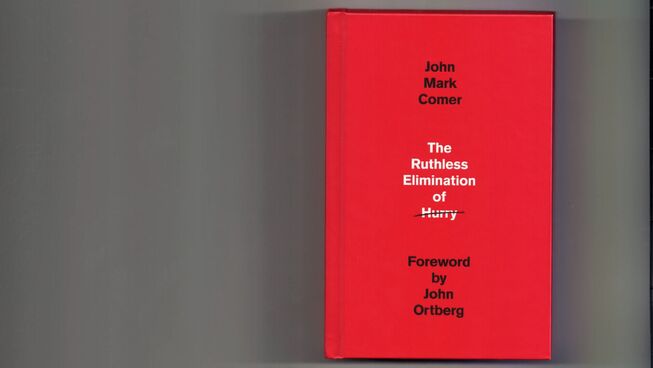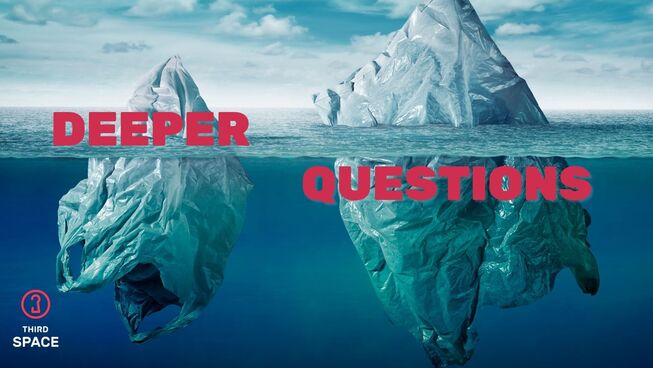The Ruthless Elimination of Hurry - A Review

I came to this book thinking it was in the genre of self-care/productivity. The premise of the book ‘eliminating hurry’ seemed to me a kind of Kondo-esque approach to my life. Perhaps there would be a model for putting all my problems in a grid and priorisiting them. I don’t do well with such books, but I was so tired that I was willing to try anything.
I was surprised and delighted to find that the premise of eliminating hurry is extremely biblical. Not only is it evident in the stories about Jesus’ unhurried life, but also all throughout the bible, we are called to cultivate peace. In my own life, I so often focus on love and joy as traits of Christian faith, but don't notice how rarely I sit still, be quiet and work on patience and see this as growth.
Although Comer does provide some very timely wisdom on how to manage life and tasks, it is mainly a reflection on the life of Jesus and the way our lives will look if we, as he calls it, apprentice under Him.
How will removing hurry help me to grow in Christ likeness?
There are so many ways that J M Comer’s book has helped me pull back from the brink of exhaustion and burnout, but his systematic process for eliminating hurry is one I will return to again and again.
Comer divides his system for eliminating hurry into four points, providing compelling theology and illustrations for each.
1. Silence and solitude
If you’re like me, you may not spend a great deal of time here. I’ve been multi-tasking for at least a decade, listening to audio while exercising, while doing data entry, while doing housework, for years. As a mum of two young kids, how else would I get everything done? This point is perhaps the hardest one for me to apply. Yet our God calls us to take his time and learn from him, Jesus modeled withdrawing to lonely places to pray and to be quiet.
2. Sabbath
Comer’s description of Sabbath as distinct from a ‘day off’ is challenging. What does ‘rest’ look like when you are stressed out but also suffering from the FOMO of two years of delayed "fun"? Well it’s not terribly restful, or satisfying. Comer models how you could plan your Sabbath in a way that’s creative and restorative for us as humans made by God. If you aren't running to meet friends, trying to cram in exercise or movies, what will a Sabbath look for you? What would truly help you to slow down and connect with God’s purpose for you on a day of rest?
3. Simplicity
If you thought you would be happier if you just went up a pay bracket, well Comer quashes that idea. Statistically speaking, the level at which wealth increases correlate with happiness peak at around 75k US a year. Comer acknowledges that financial and housing instability is very stressful but reminds those of us who are well provided for that there is no evidence that greater happiness will be correlated with a promotion. Exploring contentment and simplicity in this section can really help those struggling with discontentment due to wealth, financial issues or balancing work hours with a family at home.
4. Slowness
I often say that my son has two speeds, on and off. But if I look at myself, I am the same. I go all day, preparing kids for school, going to work, cooking, shopping, planning tomorrow. When I do stop, I feel like I have nothing left. I have gone until there are no reserves. What would happen if I just slowed down and focussed on tasks while doing them more? Comer argues that if you stop one day a week, slowing down the other 6 days feels more natural and fulfilling. He also argues that we will do our work more effectively on those six days and have a greater sense of purpose and hope.
All told, if you’re feeling overwhelmed by your work, your life or a combination of the two, The Ruthless Elimination of Hurry is a soothing, restorative meditation on God’s peace and his call to rest as part of our call to living as workers.








